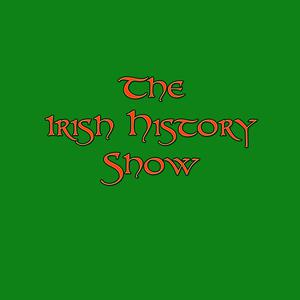
The Irish History Show
Cathal Brennan and John Dorney
Engaging debates and discussions on Irish History
- 57 minutes 47 seconds105 Elections in Ireland Part One
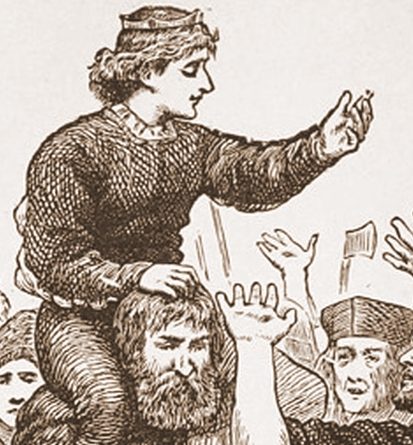
On this episode of the Irish History Show we looked at the history of elections in Ireland. Parliament in Medieval Ireland was an event rather than an institution. The earliest known parliament was held in Castledermot in County Kildare and over the years parliament met in different towns and cities throughout the Anglo – Norman Lordship of Ireland.
We looked at how these parliaments were elected, who they represented and what type of laws they passed. We looked at Poyning’s Law and the Statutes of Kilkenny.
This first episode traced the history of elections up to the end of Williamite Wars.
We have started a Patreon page for The Irish Story website and The Irish History Show. Please follow the link and your support is greatly appreciated. https://www.patreon.com/user?u=29204818
Intro / Outro music “Sliabh” from Aislinn. Licensed under creative commons from the free music archive.
23 January 2025, 5:38 pm - 2 hours 18 minutes104 Irish Genealogy
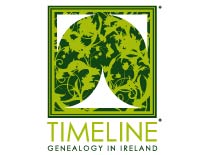
On this episode of the Irish History Show we have combined five episodes of a podcast series we made for Timeline Research Ltd. about tracing your Irish ancestors.
The series covered topics such as finding out information on relatives who fought in the First World War, housing, using the census and tax returns to make your family tree and how to use and access different archives and online resources.
The series was co-hosted by one of Ireland’s leading genealogists, Nicola Morris. Nicola is the founder and director of Timeline Research Ltd. and is currently the President of Accredited Genealogists Ireland. Nicola lectures on Genealogy in University College Dublin, University College Cork, the University of Limerick and City Colleges, Dublin.
In 2017 she was appointed to the Board of the Irish Manuscripts Commission and was more recently appointed to the Genealogy and Heraldry Committee of the Board of the National Library of Ireland.
Nicola works very closely with the production company for the BBC TV programme Who Do You Think You Are? as well as the Irish and US versions of the show, which aired on RTE, NBC and TLC networks. Nicola has appeared on screen with Rosie O’Donnell, Judy Dench, Jeremy Irons, Graham Norton, Chris Moyles, Julie Walters, Emma Willis and Paul Merton, among others. Nicola was also one of the presenters of the first series of The Genealogy Roadshow for RTE. She was a researcher for and contributor to The Tenements, an award nominated series for TV3 as well as a researcher and presenter on The Great House Revival for RTE and she works closely with other Irish and international production companies on programmes about genealogy and Irish history.
We have started a Patreon page for The Irish Story website and The Irish History Show. Please follow the link and your support is greatly appreciated. https://www.patreon.com/user?u=29204818
Intro / Outro music “Sliabh” from Aislinn. Licensed under creative commons from the free music archive.
24 December 2024, 10:42 am - 1 hour 1 minute103 The Birmingham Six
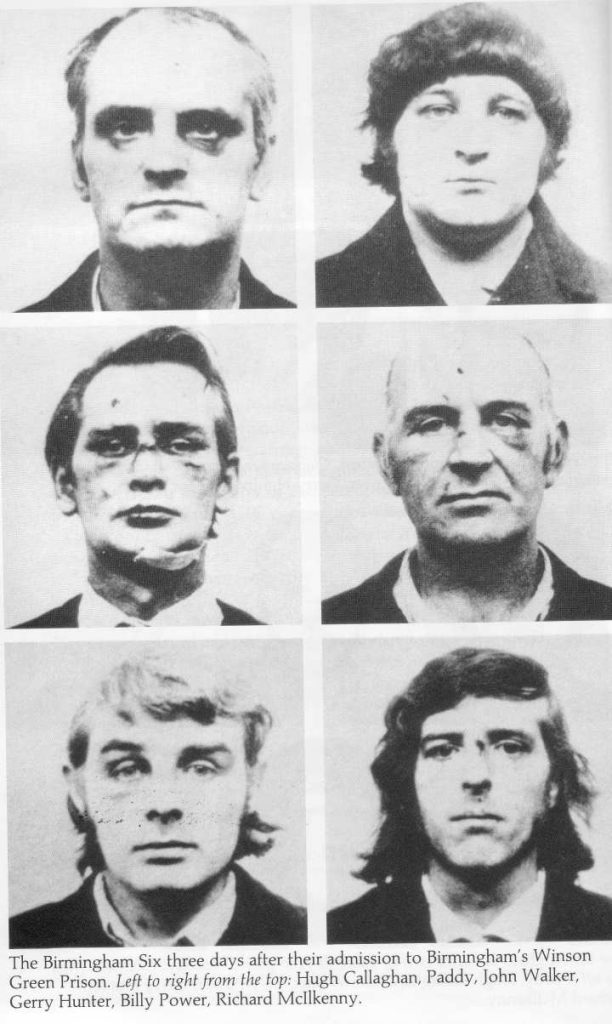
On this episode of the Irish History Show we looked at the Birmingham Pub Bombings of the 21st of November 1974 and the long campaign for justice for the six men who were wrongfully convicted of these killings.
To discuss the Birmingham Six we were joined by two special guests. Chris Mullin is an author, journalist and diarist and, from 1987 to 2010, he was the Labour Party MP for Sunderland South in England. His work with Granada Television’s World in Action current affairs series, and his 1986 book, Error of Judgement: The Truth behind the Birmingham Pub Bombings, were integral in proving the innocence of the Birmingham Six. Error of Judgement was described by the author and journalist Sebastian Faulks as ‘One of the greatest feats in investigative journalism.’ A new edition of Error of Judgement has been published this year to mark 50 years since the bombings.
Dr. Michael Flavin is from the School of Global Studies in King’s College, London. Michael’s novels include The Voice Hearer and One Small Step. He has written many articles on the Troubles and a lot of his writing draws on his experience growing up in the Irish community in Birmingham in the 1970s. Michael’s latest novel is Long is the Way and is due to be published next year.
We have started a Patreon page for The Irish Story website and The Irish History Show. Please follow the link and your support is greatly appreciated. https://www.patreon.com/user?u=29204818
Intro / Outro music “Sliabh” from Aislinn. Licensed under creative commons from the free music archive.
29 October 2024, 5:54 pm - 1 hour 12 minutes102 The McMahon Murders
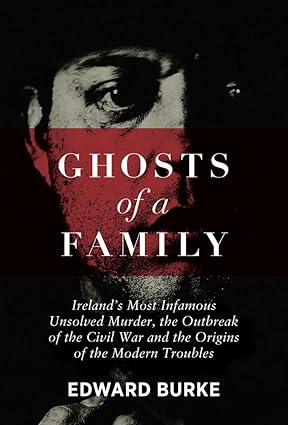
On this episode of the show we looked at the McMahon murders. The murders occurred on 24 March 1922 when six Catholic civilians were shot dead at the home of the McMahon family in Belfast. The victims were businessman Owen McMahon, four of his sons, and one of his employees. Two others were shot but survived, and a female family member was assaulted. Owen McMahon (50), Gerard McMahon (15), Frank McMahon (24), Patrick McMahon (22) and Edward McKinney (25) were killed outright while Bernard McMahon (26) died later. The youngest McMahon son, 12-year-old Michael, survived the attack by hiding behind furniture and pretending to be hit. John McMahon (30) survived despite serious gunshot wounds.
Nobody was ever prosecuted for the murders but it is believed the killers were members of the police and Ulster Special Constabulary.
We spoke to Dr. Edward Burke about his recent book, Ghosts of a Family: Ireland’s Most Infamous Unsolved Murder, the Outbreak of the Civil War and the Origins of the Modern Troubles. Dr. Burke investigates the circumstances of the murders and places it in the context of the extreme violence in the city at the time which became known as the Belfast Pogrom.
Edward Burke is an Assistant Professor in the History of War since 1945 at University College Dublin (UCD). He is currently the Director of the International War Studies MA programme and Director of Graduate Teaching at the School of History. Prior to joining UCD, he was an Assistant/Associate Professor in International Relations at the University of Nottingham (2017-2022). From 2015 to 2017 Edward was a Lecturer in Strategic Studies at the University of Portsmouth, attached to RAFC Cranwell. He received his PhD in International Relations in 2016 from the University of St. Andrews.
We have started a Patreon page for The Irish Story website and The Irish History Show. Please follow the link and your support is greatly appreciated. https://www.patreon.com/user?u=29204818
Intro / Outro music “Sliabh” from Aislinn. Licensed under creative commons from the free music archive.
11 October 2024, 1:19 pm - 1 hour 22 minutes101 Gerry Healy and the Workers Revolutionary Party
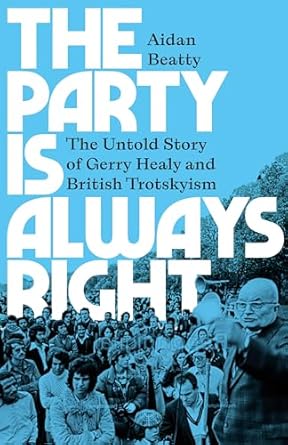
On this episode of the show we were joined by Dr. Aidan Beatty to discuss his new book The Party is Always Right: The Untold Story of Gerry Healy and British Trotskyism published by Pluto Press.
Gerry Healy was the Galway born leader of the Socialist Labour League and the Workers Revolutionary Party. He was a key figure in Trotskyism and one of the most controversial leaders on the British left. His legacy is tainted by his expulsion from his own party under accusations of sexual abuse, his use of violence against political opponents and the cult like conditions of his party.
Aidan Beatty is an award-winning historian and lecturer at Carnegie Mellon University, Pittsburgh, Pennsylvania. He is the author of Private Property and the Fear of Social Chaos, and Masculinity and Power in Irish Nationalism, which was awarded the James S. Donnelly Sr. Prize. He has written for Jacobin, the Irish Times and the Washington Post. He will be the president of the American Conference for Irish Studies in 2025.
We have started a Patreon page for The Irish Story website and The Irish History Show. Please follow the link and your support is greatly appreciated. https://www.patreon.com/user?u=29204818
Intro / Outro music “Sliabh” from Aislinn. Licensed under creative commons from the free music archive.
4 October 2024, 5:22 pm - 58 minutes 35 seconds100 One Hundredth Episode Special
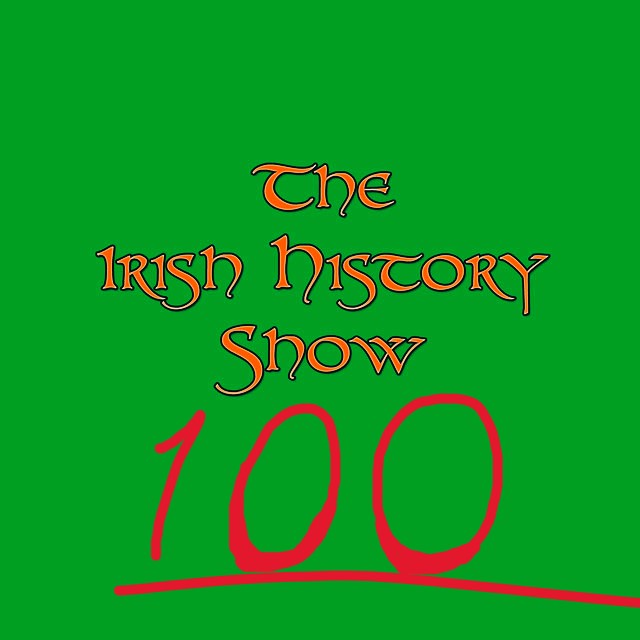
We have reached a very special milestone on the Irish History Show as this is our 100th episode! We discussed setting up the show and how it has evolved over the years. Our thanks to Near FM for originally broadcasting the show and our special thanks to all the amazing guests we’ve had over the years. We remember our favourite episodes and subjects we’ve returned to time and again.
Most importantly we want to thank you the listeners for all the support over the years and hopefully it won’t take as long to reach 200 episodes!
We have started a Patreon page for The Irish Story website and The Irish History Show. Please follow the link and your support is greatly appreciated. https://www.patreon.com/user?u=29204818
Intro / Outro music “Sliabh” from Aislinn. Licensed under creative commons from the free music archive.
3 September 2024, 6:02 pm - 50 minutes 17 seconds99 The Irish Civil War Fatalities Project
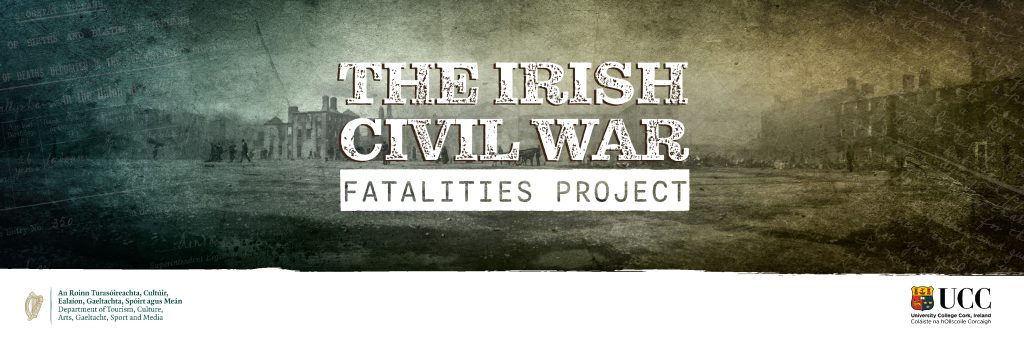
On this episode of the show, we discussed the Irish Civil War Fatalities Project.
The Irish Civil War Fatalities Project, supported with funding from the Department of Tourism, Culture, Arts, Gaeltacht, Sport and Media, seeks to identify all of the conflict-related fatalities in Ireland between the opening shots of the Civil War on 28 June 1922 and the ceasefire and dump arms order on 24 May 1923.
For decades, historians of the Civil War have resorted to estimates when surveying the human cost of Ireland’s Civil War. Now, for the first time, UCC historian Dr Andy Bielenberg, assisted by John Dorney, has enumerated the civilian and combatant fatalities, allowing for a wide-ranging, sometimes surprising, analysis of the nature and geographic distribution of the casualties and their impact.
In collaboration with UCC’s Atlas of the Irish Revolution Team, the research findings have been cartographically represented in a searchable, interactive Civil War Fatalities map.
The project can be accessed here.
Our own John Dorney discussed his time working on the project and what information is contained on the new site.
We have recently started a Patreon page for The Irish Story website and The Irish History Show. Please follow the link and your support is greatly appreciated. https://www.patreon.com/user?u=29204818
Intro / Outro music “Sliabh” from Aislinn. Licensed under creative commons from the free music archive.
14 May 2024, 3:19 pm - 1 hour 2 minutes98 The Ulster Plantation

On this episode of the Irish History Show we looked at the Plantation of Ulster. The Plantation was the colonisation of Ireland’s northern province of Ulster by people from Britain during the reign of James VI and I. The official plantation began in 1609 in six of Ulster’s nine counties, Donegal, Coleraine, Tyrone, Fermanagh, Armagh and Cavan. Lands in counties Antrim, Down and Monaghan were privately planted with Crown support.
We have recently started a Patreon page for The Irish Story website and The Irish History Show. Please follow the link and your support is greatly appreciated. https://www.patreon.com/user?u=29204818
Intro / Outro music “Sliabh” from Aislinn. Licensed under creative commons from the free music archive.
6 May 2024, 7:56 am - 1 hour 9 minutes97 The Nine Years War
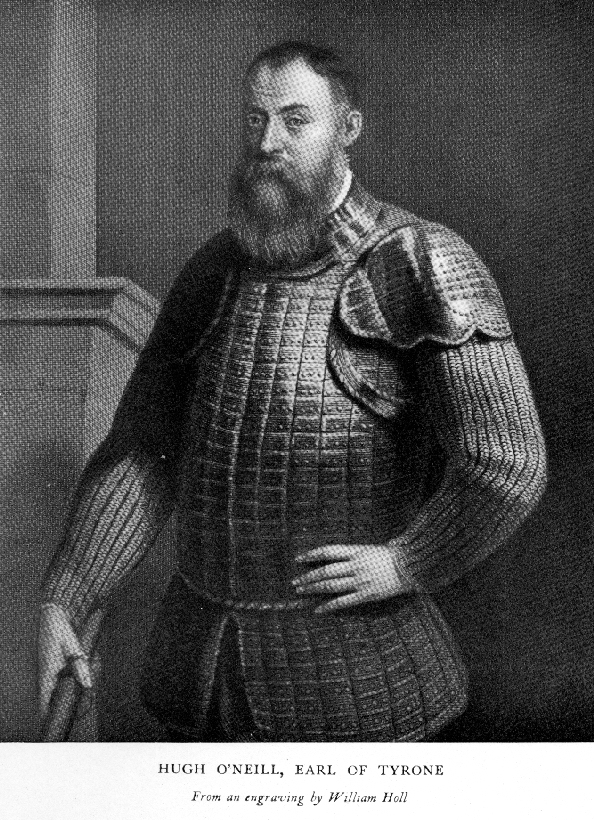
The Nine Year War in Ireland took place in Ireland from 1593 to 1603. The rebellion was led by Hugh O’Neill and Red Hugh O’Donnell and was a response to the Tudor Conquest in Ireland. The rebellion began in Ulster but eventually spread throughout the whole country. There were some significant Irish victories such as Clontibret and Yellow Ford but the Battle of Kinsale saw the English win a pivotal victory against the Irish and their Spanish allies.
(Unfotunately, when we were discussing the marriages of Hugh O’Neill, we referred to Mabel Bagenal as the former wife of Henry Bagenal. She was Henry’s sister and she eloped with Hugh O’Neill, much to the anger of Henry Bagenal.)
We have recently started a Patreon page for The Irish Story website and The Irish History Show. Please follow the link and your support is greatly appreciated. https://www.patreon.com/user?u=29204818
Intro / Outro music “Sliabh” from Aislinn. Licensed under creative commons from the free music archive.
29 February 2024, 1:32 pm - 57 minutes 19 seconds96 The Desmond Rebellions
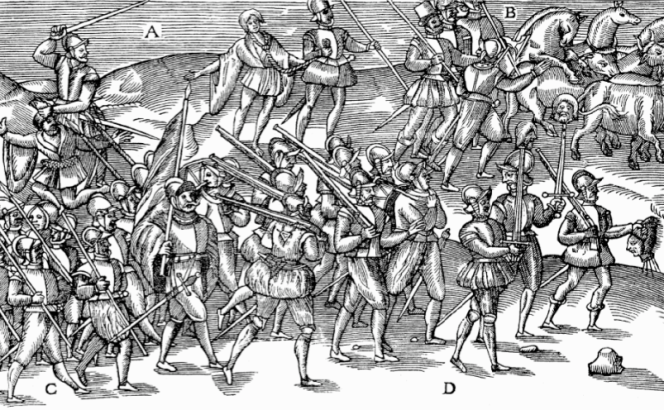
The Desmond Rebellions occurred in 1569–1573 and 1579–1583 in the Irish province of Munster. They were rebellions by the Earl of Desmond, the head of the FitzGerald dynasty in Munster, and his followers, the Geraldines and their allies, against the threat of the extension of the English government over the province. The rebellions were motivated primarily by the desire to maintain the independence of feudal lords from their monarch but also had an element of religious antagonism between Catholic Geraldines and the Protestant English state. They culminated in the destruction of the Desmond dynasty and the plantation or colonisation of Munster with English Protestant settlers.
Two articles here from the Irish Story website on the Desmond Rebellions:
We have recently started a Patreon page for The Irish Story website and The Irish History Show. Please follow the link and your support is greatly appreciated. https://www.patreon.com/user?u=29204818
Intro / Outro music “Sliabh” from Aislinn. Licensed under creative commons from the free music archive.
28 November 2023, 3:33 pm - 1 hour 5 minutes95 The 1923 General Election in the Irish Free State
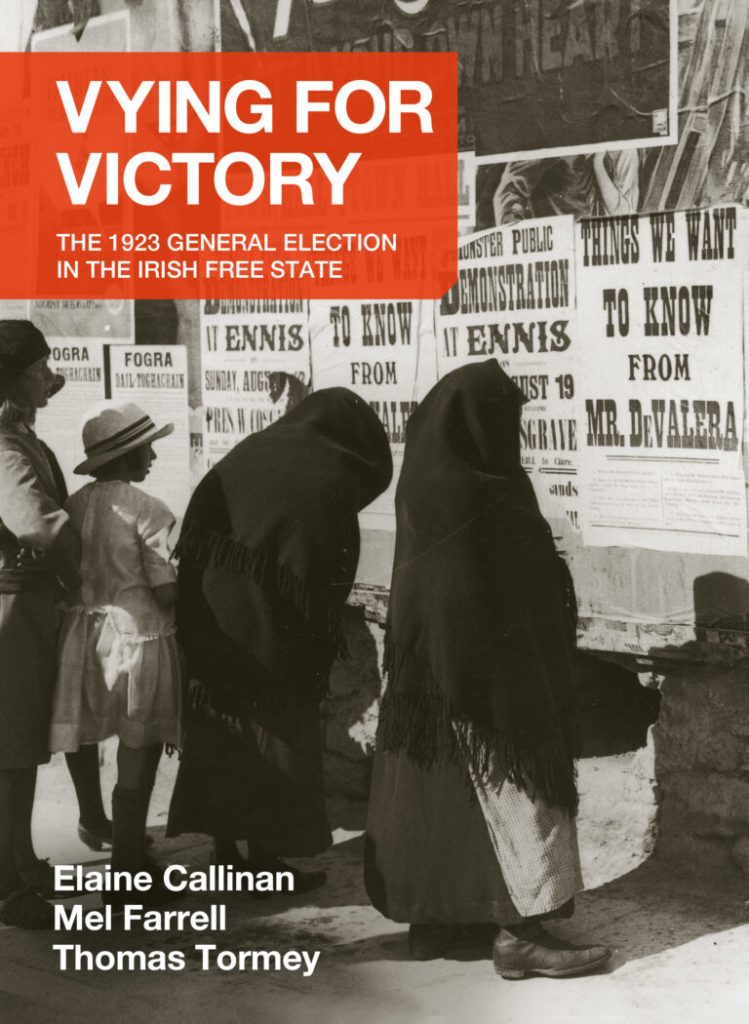
On this episode of the Irish History Show we discussed the 1923 General Election in the Irish Free State. The election for the fourth Dáil was held on the 27th of August 1923. It was the first general election held since the establishment of the Irish Free State on the 6th of December 1922. The election was held in aftermath of the Irish Civil War, which had only ended a few short months before.
UCD Press has recently published a new book on the 1923 election called Vying for Victory. The book is edited by Mel Farrell, Elaine Callinan and Thomas Tormey and we were very pleased to be joined by Mel and Elaine on the show.
Both Dr. Elaine Callinan and Dr. Mel Farrell lecture in Irish history at Carlow College, St. Patrick’s.
We have recently started a Patreon page for The Irish Story website and The Irish History Show. Please follow the link and your support is greatly appreciated. https://www.patreon.com/user?u=29204818
Intro / Outro music “Sliabh” from Aislinn. Licensed under creative commons from the free music archive.
17 November 2023, 6:20 pm - More Episodes? Get the App
Your feedback is valuable to us. Should you encounter any bugs, glitches, lack of functionality or other problems, please email us on [email protected] or join Moon.FM Telegram Group where you can talk directly to the dev team who are happy to answer any queries.
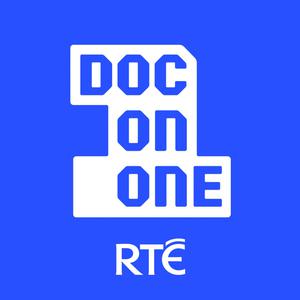 Documentary on One Podcast
Documentary on One Podcast
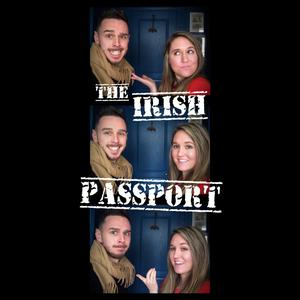 The Irish Passport
The Irish Passport
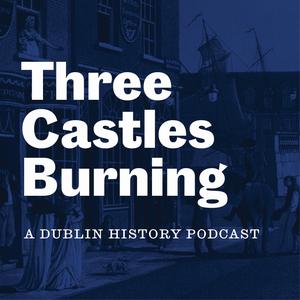 Three Castles Burning
Three Castles Burning
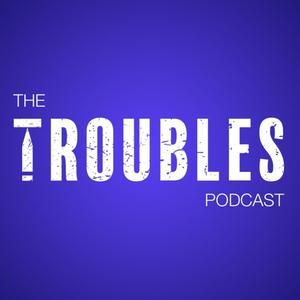 The Troubles Podcast
The Troubles Podcast
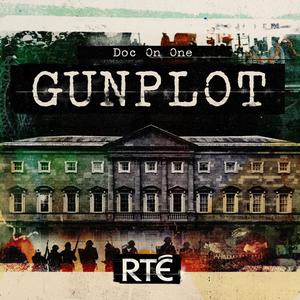 GunPlot
GunPlot
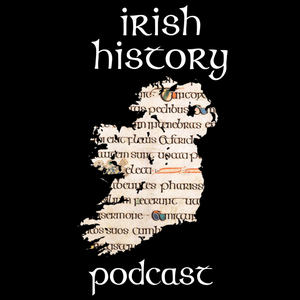 Irish History Podcast
Irish History Podcast